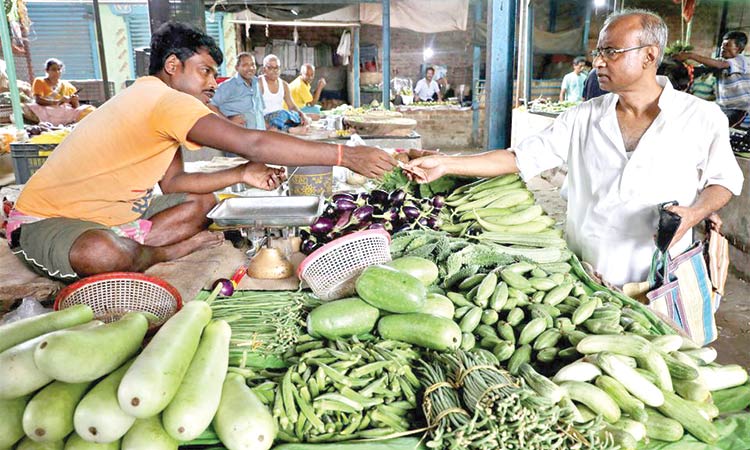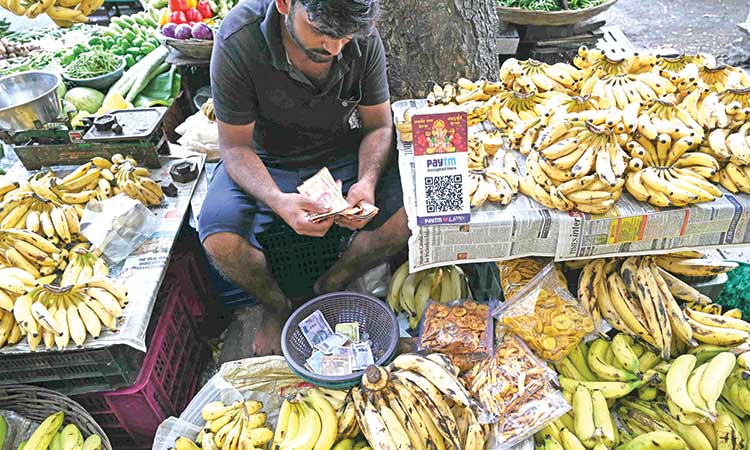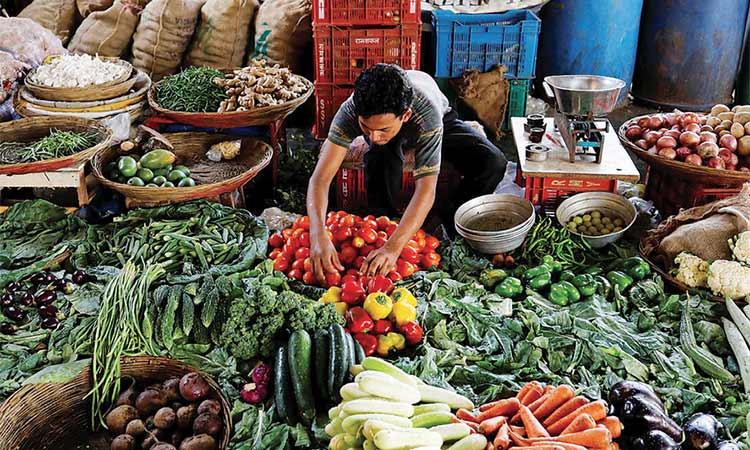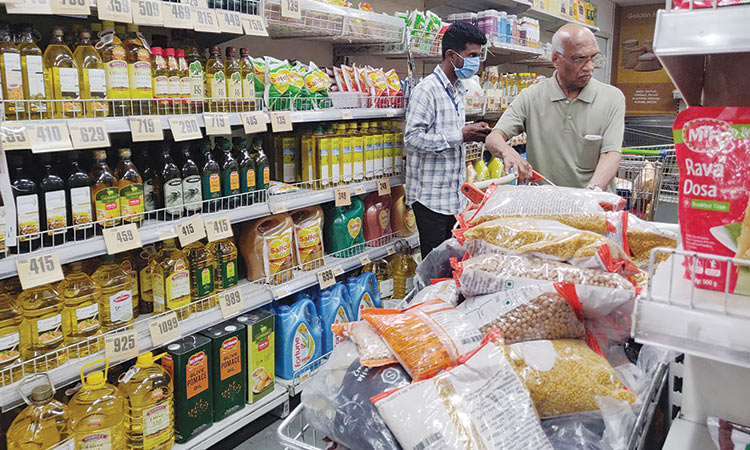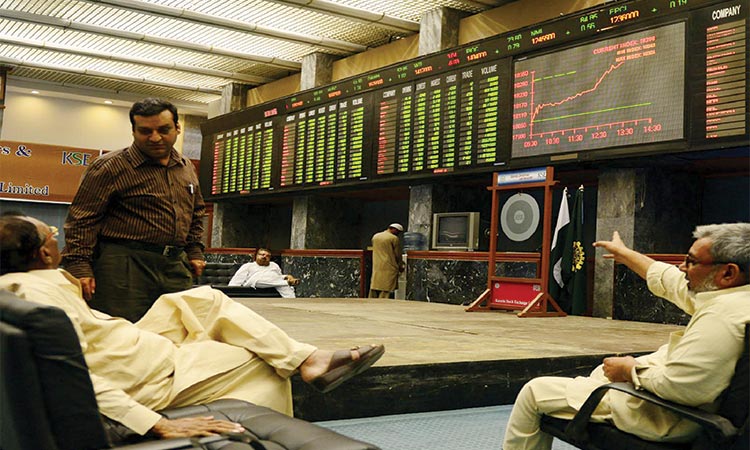Indian shares close at 1-month high as inflation concerns ease
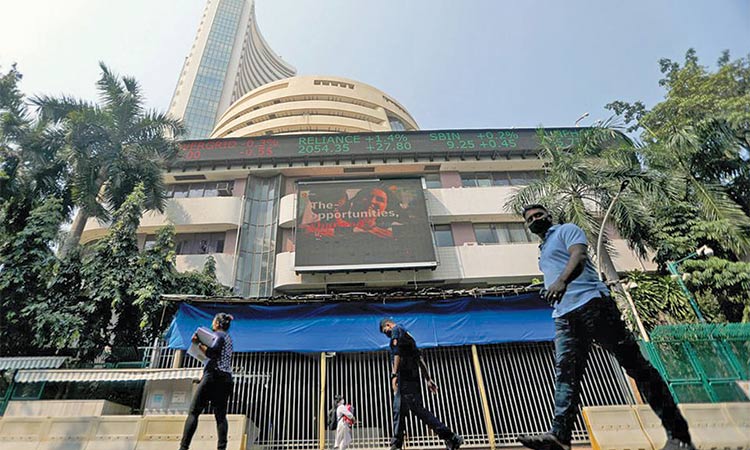
People walk past the Bombay Stock Exchange in Mumbai. File/Reuters
The NSE Nifty 50 index ended 0.54% higher at 16,220.6, while the S&P BSE Sensex gained 0.56% to 54,481.84, advancing in line with Asian peers. The indexes were up about 3% for the week.
However, news that Japan’s former prime minister Shinzo Abe died after he was shot during a speech blunted gains in Asia. Investors also awaited key US jobs data later in the day.
“The market was in oversold territory and we have positive news of a decisive downturn in commodity and crude prices, so that has helped the market bounce amid easing foreign investor selling,” said Gaurav Dua, head, capital market strategy at Sharekhan.
Foreign investors sold a net $373.31 million worth of Indian equities up to Thursday, the smallest outflow in five weeks, compared with net $556.13 million in the same period last week.
Easing inflation worries was a 6.25% drop in Brent crude this week up to Thursday’s close, while copper, a bellwether for economic output, shed 2.8% amid demand worries.
In Mumbai, construction major Larsen & Toubro was the top percentage gainer, jumping 4.7% to log its best day since February 2021.
The Nifty Energy index advanced 1%, with Adani Transmission and Power Grid each gaining 3%, while NTPC climbed 2.3%.
Tata Motors rose 2.5% to a more than five-week closing high. The automaker said global wholesales climbed 48% in the first quarter.
Indian sugar firms jumped after the government extended an export period for mills.
TCS, which will kickstart the earnings season later in the day, closed 0.7% lower.
Meanwhile, inflows in India’s equity mutual funds dropped more than 16% in June compared with May and are likely to remain weak in the current quarter due to worries over interest rate hikes and inflation, an industry body said on Friday.
Mutual funds that invest in equities showed a net inflow of 154.98 billion rupees ($1.96 billion) in June, compared with 185.29 billion rupees in May, data published by the Association of Mutual Funds in India (AMFI) showed.
“Markets in June were very volatile and showed a negative trend. Despite that we have positive inflows and retail investors continue to show faith in equity markets through mutual fund route,” said N.S. Venkatesh, chief executive officer at AMFI.
“Retail investors will wait for (positive) economic data and for inflation to come down before making further allocations,” Venkatesh said, adding that inflows in equity mutual funds are expected to be about 130 billion rupees to 150 billion rupees at least until September.
Indian benchmark indexes NSE Nifty 50 and S&P BSE Sensex fell for a third straight month in June, dropping nearly 5% amid huge volatility.
Foreign investors sold $6.44 billion worth of Indian shares in June, the most since March 2020, compared with a net selling of $5.18 billion in May, according to Refinitiv Eikon data.
Equity mutual funds saw record inflows of 284.63 billion rupees in March, but have dropped since then due to worries over the Russia-Ukraine war, red-hot inflation and recession fears due to aggressive monetary policies by major central banks.
Indian benchmark indexes, which gained over 20% last year, are down more than 6% this year.
Meanwhile, contribution from Systematic Investment Plans (SIPs), popular among retail investors for allowing investment of a fixed amount regularly in schemes, stood at 122.76 billion rupees as of June end, compared with 122.86 billion rupees in May.
Summer-sown crop: Farmers in India have fallen behind in planting key summer-sown crops such as rice, corn and soybeans due to the uneven distribution of monsoon rainfall, although they could recover ground in the coming week if there is enough rain.
As of July 8, 40.67 million hectares had been planted with summer crops, some 9.3% less than a year earlier, according to the Ministry of Agriculture & Farmers’ Welfare.
The planting of summer-sown crops takes place in the monsoon months of June and July, while harvesting starts in October.
Some 7.2 million hectares had been planted with rice, well down from 9.5 million hectares in the previous year, the ministry said.
“Rainfall deficit is quite high in eastern rice growing states. Area and yield could fall if these areas don’t get ample rainfall in next few days,” said a Mumbai-based dealer with a global trading firm.
India has received normal rains since the start of monsoon season on June 1, but key rice producing regions have received as much 46% less rainfall than the normal.
In July, the most crucial month for planting of summer crops, India is likely to receive monsoon rainfall between 94% and 106% of the long-term average, weather department said last week.
